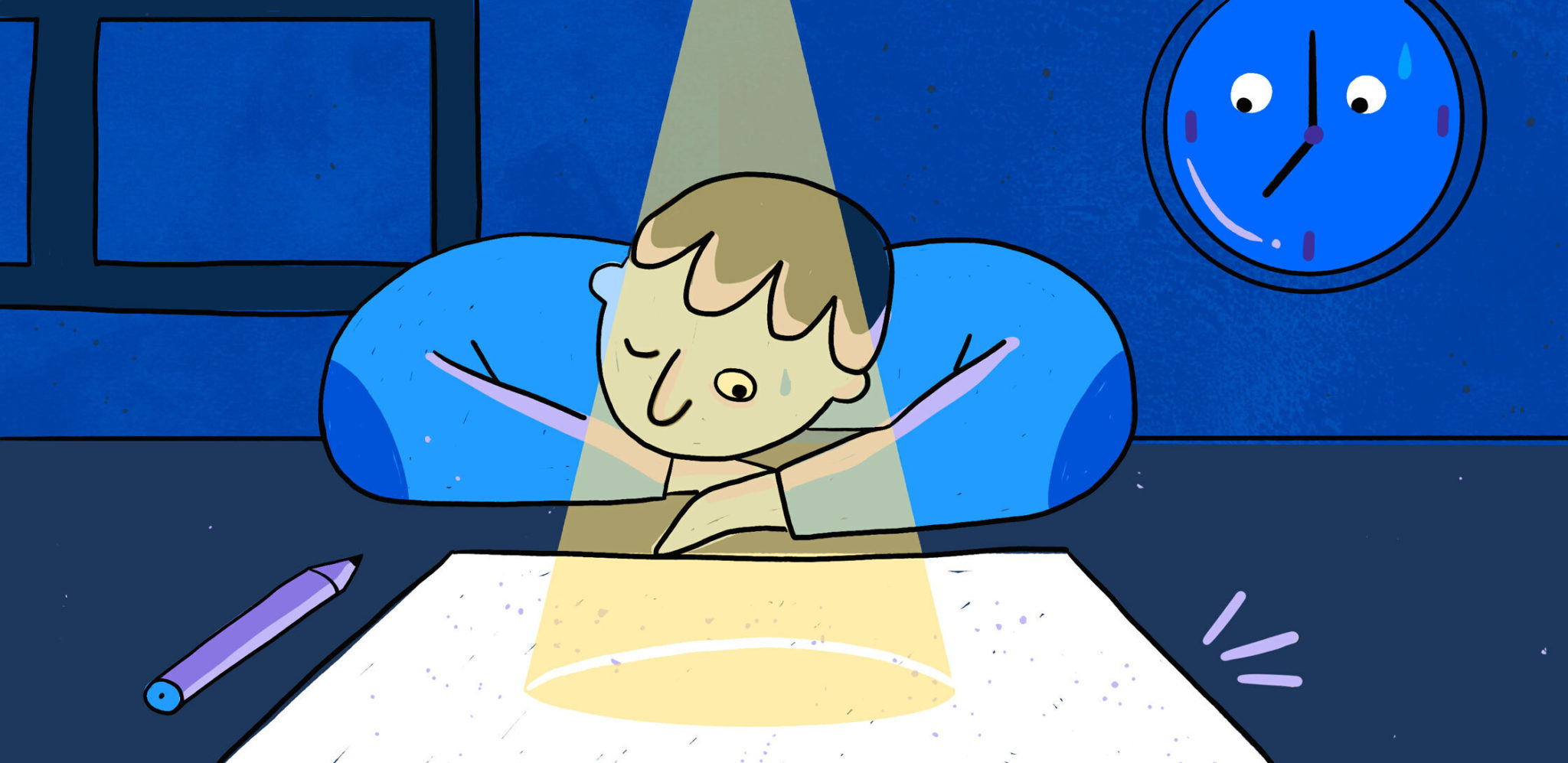Pathologizing Procrastination
by Mya Arscott | Thursday, Feb 23, 2023
Procrastination; it’s a concept most of us are probably familiar with as college students. Procrastination is the blissful art of stalling. Personally, I consider myself to be a professional procrastinator (totally not procrastinating while writing this). But why do so many of us tend to procrastinate? Is it out of laziness? Is it out of responsibility? Sometimes it is. However, there seems to be a more psychologically relevant explanation as to why we as humans, especially college students, tend to procrastinate.
Procrastination and Anxiety
Anxiety and procrastination are heavily correlated. In a NY Times article about procrastination, Dr. Fuschia Sirois, professor of psychology at the University of Sheffield, states that “People engage in this irrational cycle of chronic procrastination because of an inability to manage negative moods around a task.” In short, a lot of people (including myself) put things off due to the overwhelming feeling of being overwhelmed. Cognitively, we can think of this in terms of our working memories being overloaded, and in an attempt to alleviate that feeling of cognitive load, we put off our tasks as a problem for our future selves.
Procrastination and ADHD
There is a lot of scientific research that suggests that procrastination typically serves as a ‘compensation technique’ for those with ADHD (Neirmann et al. 2014). It is widely believed that this has to do with the lack of executive functioning typically seen in individuals with ADHD. Executive functioning relates to the mental processes that allow us to focus, remember, and manage time, to name a few. So, with a decrease in executive functioning skills, it typically becomes harder to manage tasks, make decisions on when to perform a task, etc.
Procrastination and Depression
As previously stated, procrastination has to do with avoidance, typically of the negative feelings associated with doing a certain task. Dr. Tim Pychyl, Professor of Psychology at Carleton University in Ottawa, says that “Procrastination is an emotion regulation problem, not a time management problem.” So, an individual with depression is much more likely to put off a task to avoid the influx of negative emotions that come from doing this task.
How to Stop Procrastinating
In a weird way, procrastination is a form of ‘self-care’ that ultimately leads to self-destruction. So you may be wondering, “How do I stop this destructive cycle?” Well, the answer is to realize the act of procrastination is an issue of emotion, not productivity. In order to stop procrastinating, you have to ask yourself, “Why am I procrastinating in the first place?” As I mentioned earlier, occasionally we procrastinate because we would rather watch anime or sleep. But sometimes, procrastination is our brain's way of coping. It’s a form of protection against our own minds. In an instance like that, my best advice would be to address the root of the issue, then thank your brain for trying to protect itself. Procrastination is a complicated cycle, but it’s not something you can’t get over, nor should you beat yourself up for doing it. ‘Cause at the end of the day, you're doing your best, and that's all that really matters.
Works Cited:
Lieberman, C. (2019, March 25). Why you procrastinate (it has nothing to do with self-control).
The New York Times. Retrieved November 6, 2022, from
https://www.nytimes.com/2019/03/25/smarter-living/why-you-procrastinate-it-has-nothin
g-to-do-with-self-control.html
Low, K. (2022, May 18). The relationship between ADHD and chronic procrastination. Verywell
Mind. Retrieved November 6, 2022, from https://www.verywellmind.com/adhd-and-chronic-procrastination-20379
Niermann, H. C. M., & Scheres, A. (2014). The relation between procrastination and symptoms of attention-deficit hyperactivity disorder (ADHD) in undergraduate students.
International Journal of Methods in Psychiatric Research, 23(4), 411–421. https://doi.org/10.1002/mpr.1440
Sussex Publishers. (n.d.). 6 tips for overcoming anxiety-related procrastination. Psychology
Today. Retrieved November 6, 2022, from https://www.psychologytoday.com/us/blog/in-practice/201303/6-tips-overcoming-anxiety -related-procrastination